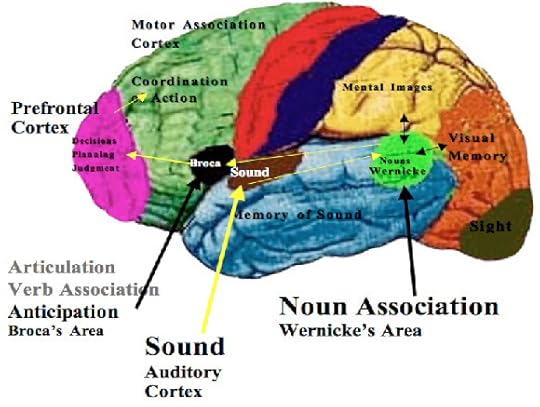National Grammar Day 2015
You mean you didn���t know?!? Well, neither did I, until Twitter alerted me a couple of years ago. Actually, it���s more an American than a British “thang”, started in 2008, by Martha Brockenbrough, founder of The Society for the Promotion of Good Grammar.
If you enjoy this blog, and find it useful, there’s an easy way for you to find out when I blog again. Just sign up (in the right-hand column, above the Twitter feed) and you’ll receive an email to tell you. “Simples!”, as the meerkats say. I shall be blogging regularly about issues of English usage, word histories, and writing tips. Enjoy!
What are we supposed to be celebrating?
Before you decide to run into the street dressed as a proper noun, abolish capitals forever like e.e. cummings, or construct grandiose, hugely baroque Dickensian periods��for your blog, it might be worth considering exactly what people mean by the word “grammar”. After all, it���s not a word that passes people���s lips that often. And those who do use it usually think it is going to the dogs.
A technical definition
For linguists and grammarians, grammar is, broadly speaking, “the whole system and structure of a language“. Specifically, grammar usually narrows down to the rules governing how you combine words to make meaningful sentences, the inflections of words (e.g. is the past tense of dive dived or dove?, is the plural of consortium consortia or consortiums?), how verbs behave, what adverbials are, and the like, as illustrated in the graphic above. You will not find the writers of such eminently readable and practical tomes as the Collins Cobuild English Grammar sneering at someone’s spelling mistake and calling it a grammatical error.

A tortured grammarian pondering end-of-sentence prepositions. Well, St Jerome, actually, but he’ll do.
But for lay people (non-linguists), the term grammar is far from technical. Rather, it is just a ragbag into which they stuff any and every use of language which they object to (or should that be “to which they object”?).
What grammar is not
Most people cleave to the following definition of grammar: “A set of actual or presumed prescriptive notions about correct use of a language”.
And this definition seems to hold true for some editors and copy editors, whose livelihood, after all, depends on following and applying certain rules���sometimes regardless of whether those rules have any validity. Rules such as “which can only be used in non-defining relative clauses” or “it is incorrect to use they referring back to everyone“.
The linguistic definition of grammar, in fact, excludes most of the things that raise people���s blood pressure:
word choice
punctuation
capitalization
spelling
neologisms
slang
clich��
pronunciation
None of those are (is?) grammar.
Prescriptive grammar
The idea that they come under the umbrella of grammar corresponds to the different dictionary definition mentioned previously: “a set of actual or presumed prescriptive notions about correct use of a language”.
This interpretation of grammar as being about prescription has ��developed over centuries for many reasons, including as a way of marking social and group identity; of separating in-groups from out-groups.
A quotation from 1892 about aitch-dropping shows how rigorous such demarcations could–and can–be:
A very fine young man, but evidently a nobody, inasmuch as he dropped his aitches and so on.

This splendid-looking geezer was never invited to the smartest parties because ‘e dropped ‘is aitches something ruthless. Perhaps that explains the slightly affronted look.
It is reflected in the name of a slightly fascistic current book title��“I judge you when you use poor grammar“, which also has a Facebook group. In fact, most of the mistakes its members glote [sic] ��over are spelling mistakes or choices of the wrong word. This is also true of the Society for the Promotion of Good Grammar website, where we are implicitly invited to sneer at someone who wrote “distinguished the fire” instead of “extinguished the fire“, and similar catachreses (now, there’s a splendid word!). Sadly, this kind of ��pseudo-grammatical anality is on a par with the prejudices of those Southern Englishers who think that people with, for example, a Yorkshire accent are devoid of grey matter.
A healthful diet is good for you
To illustrate the arbitrary nature of some alleged grammar rules, let���s look at just one example of a use which– strangely, at least for a British audience–can give some American copy editors the screaming abdabs. Is it “good grammar” to talk of food, a diet, a lifestyle, as being healthy? Some intransigents and diehards insist that the correct word in those contexts is healthful.
The (false) reasoning behind this seems to be that if you define healthy as “in good health” it must, by definition, apply only to people. A turnip cannot–as far as we know, but then we don’t so far speak “turnip”, though perhaps HRH Prince Charles could interpret for us–enjoy rude good health, and therefore another word is required to denote “conducive to good health”. Enter healthful.
In fact, though healthful is the older word, healthy has been used to mean “conducive to good health” since the 16th century. The ban on it dates only to 1881, and has been passed down as an editorial meme ever since then. (Go here to hear the dulcet-toned Emily Brewster of ��Merriam-Webster��setting the record straight.)
The prescription totally ignores a productive feature of English: the transferred epithet��, which makes it possible, for example, to apply the word sad not merely to people who feel miserable, but also to the events which give them the blues in the first place. Countless other words behave in the same way; to make an exception of healthy is nonsensical and fetishistic. More to the point, and less emotively, it actually ignores the real “grammar” of English.��
The sage of Walden Pond
Back to grammar. As regards the second definition I mentioned, it���s worth quoting Thoreau, writing in 1862, when prescriptive grammar held sway:
When I read some of the rules for speaking and writing the English language correctly ��� I think ���
Any fool can make a rule
And every fool will mind it.
When it comes to the broader definition of “grammar” as our whole language system, we should certainly be celebrating the wonderful ingenuity of human and animal brains in developing it in the first place, and the thousands of ways in which it enriches our experience.
We should also celebrate the fact that all mother-tongue speakers know the grammar of their language, and use it correctly every time they utter, even if they can’t formulate its rules.
Filed under: Grammar, Meaning of words, Topical







